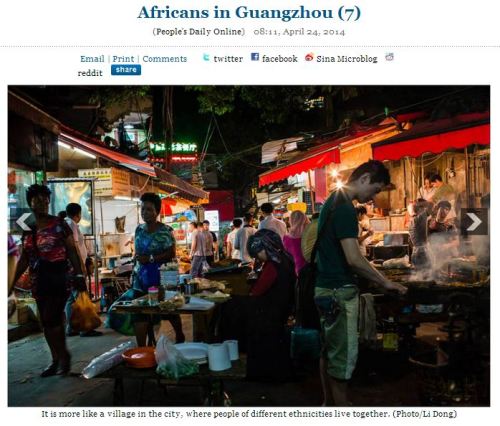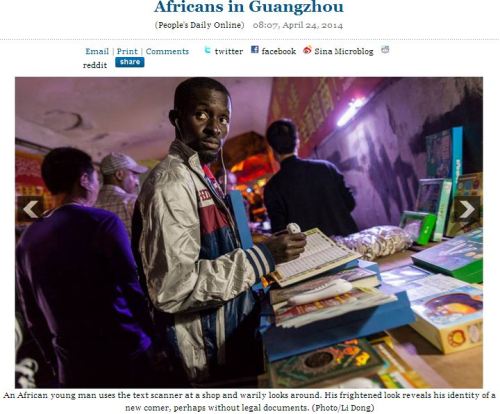Top 10 Complaints Chinese Women Have About Their Foreign Boyfriends
Posted: 07/21/2014 5:20 pmFor some foreigners, seeking opportunity in China is tied to finding love. For these Chinese ladies, being in a cross-cultural relationships means they must show their love in a specific way: by complaining.
China Daily has compiled this list of the top complaints Chinese women have about their foreign boyfriends. Reportedly provided by an unidentified Pakistani national, the list does a good job of simplifying the cultural differences between China and the rest of the world into two distinct homogeneous globs so that we can better understand them both.
This list was originally published in Chinese, but with the term “you” used so often to denote the Western boyfriend, we thought it was necessary to bring it to a Western audience.
Here then are the top ten complaints a Chinese woman has about her foreign boyfriend:
1. You Don’t Help Me Carry My Bag!
The majority of foreign boyfriends fundamentally think that carrying their girlfriend’s handbag is not masculine at all. However, this is the most common request of a Chinese girlfriend. Chinese girlfriends often put unnecessary things that are of no use into their handbags just so their boyfriends can help them carry it. And, foreign boyfriends don’t tend to carry bags (of their own) when they go out.
2. You Don’t Talk to Me Often Enough!
Chinese girlfriends often require you to communicate with them everyday: to call or text them them two to three times a day in order to show them you care. This is something that won’t change. Therefore, if you want to date them for a while, you must adapt to this.
3. You Don’t See Me Often Enough!
If you don’t see your girlfriend often enough, she will think that you are selfish. If you haven’t done what a Chinese girl wants you to do, she will think you are selfish. They will not miss any opportunity to criticize you for being selfish. However, the term “selfish” is not as serious of a complaint to foreigners. They (in all of their hundreds of cultures) think that being called “selfish” is very normal. This is not the case at all for Chinese people.
4. Stop Spending So Much Time With Your Friends!
Sometimes, Chinese girlfriends will complain that they don’t like your friends. However, that’s not the whole story: all they want is for you to spend less time with your friends so that you can spend more time with your girlfriend. They want a to live in a world with just the two of you, and not go out and see friends.
5. Why Don’t You Take Me Out With You to the Bars?
Whenever you go out to the bar, she’ll often complain that you don’t take her out with you. She will use every reason to criticize you for not taking her with you. She’ll say that you don’t like her being in a bar because she wants you to always remain by her side.
6. No Sense of Fashion
She wants you to dress according to what she thinks. Fashion styles in China are completely different from those of other countries and with which is difficult to comply, so ready yourself to confront this type of complaint day and night.
7. You Don’t Understand Chinese Culture!
Your Chinese girlfriend will often say that you need to learn Chinese culture better.
8. Eat More!
It sounds very strange to hear, but is a fact: Chinese girlfriends will recommend you to “eat more healthily”. A Chinese proverb is “eating more is eating healthy”. They are following this rule to the letter, and take along their boyfriends for the ride.
9. Don’t Eat So Much!
Sooner or later you’ll start to eat more, but then you’ll begin to hear another complaint: you’re eating too much. Your Chinese girlfriend will tell you that you should start to eat less because it’s better for your health. All of a sudden, the aforementioned Chinese proverb and perspective will change.
10. Shopping
Finally, Chinese girlfriends will complain that you don’t take them out to go shopping. It’s true! They’re correct. Remember to take her shopping, but only go window shopping. She wants to go strolling with you. Sometimes, she’ll want you to spend a little money. Not long after spending it, she will say, “I had previously thought you to be selfish, but now you’ve shown me you aren’t.”
Photo: China Daily














